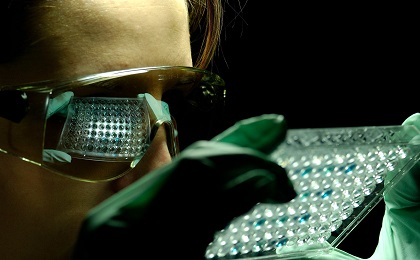Market Highlights
the global host cell protein testing market is expected to register a CAGR of~5.7% from 2021 to 2027.
The global host cell protein (HCP) testing market is driven by several factors, such as developments in the biopharmaceutical field and growing R&D activities. Furthermore, the technological advancements in the HCP testing products will drive the market. Rising chronic diseases such as cancer are driving more R&D efforts to find viable treatments, contributing to market growth. According to the International Agency for Research on Cancer (IARC), the global burden of cancer in 2020 reached19.3 million cases and 10 million cancer deaths. Furthermore, according to the American Cancer Society, by 2040, the global burden of cancer will reach 27.5 million cases and 16.3 million cancer deaths.
The industry players are focusing on new product development, obtaining product approvals from the regulatory bodies for more penetration in the global host cell protein testing market. For example, in June 2019, Cygnus Technologies (US) broadened its service offerings for HCP analysis with its Mass Spec Services, which will be able to detect and quantify HCPs. Furthermore, the key players are involved in new product launches, strategic agreements, and joint ventures to augment their market positions. For instance, in August 2019, Cygnus Technologies announced a strategic partnership with Bio-Techne (US)to quantify Chinese hamster ovary host cell proteins (CHO-HCP) on the ProteinSimple Ella immunoassay platform. Furthermore, in November 2020, Thermo Fisher Scientific (US) had collaborated with Northeastern University (US) to enhance its analytical capabilities and innovate in areas like monoclonal antibodies, gene, and cell therapies, where HCP testing is required
Regional Analysis
North America is likely to dominate the host cell protein testing market, owing to increasing investments in R&D, the presence of key companies, and developed healthcare infrastructure in the region. For instance, in 2020, the National Institutes of Health (NIH) received a funding of USD 42 billion, which has increased by 7% compared to 2019.
Europe is likely to account for a significant share in the host cell protein testing market due to supportive government initiations and rising R&D investments. The launch of new products by the market players is expected to further flourish the market growth in Europe. For instance, in September 2019, Amsbio LLC (UK) launched new HCP detection kits specialized in detecting HCP at any stage of the drug development process.
Asia-Pacific is projected to be the fastest-growing regional market during the forecast period due to the high prevalence of chronic diseases like cancer and emerging economies. For instance, according to the World Cancer Research Fund (WCRF), in 2018, Australia had the highest cancer rate for both sexes at 468.0 per 100,000 individuals, which is boosting R&D efforts to find new viable drugs driving the HCP testing market.
Furthermore, the growth of the market in the Rest of the World is attributed to improving healthcare facilities and supportive government regulations to bring more advanced technologies into the region.
Segmentation
The global host cell protein testing market has been segmented into type and end user.
By type, the market has been segmented into PCR-based assays, ELISA-based assays, and others. The ELISA-based assays segment is expected to hold the largest share of the market in 2020 as it is considered the gold standard for HCP testing.
Based on end users, the market has been segmented into Contract Research Organizations (CROs), biopharmaceutical companies, and others. The biopharmaceutical companies segment held the largest segment share in 2020because of the extensive R&D efforts and company funding to develop new therapeutics and utilization of HCP testing in the process.
Key Players
Some of the key market players are Enzo Life Sciences, Inc. (US), Cygnus Technologies Inc. (US), BioGenes GmbH (Germany), Cytiva (US), Cisbio Bioassays (France), Molecular Devices (US), Thermo Fisher Scientific (US), Charles River (US), Bio-Rad Laboratories (US), and ForteBio (Pall) (US)

